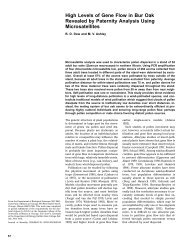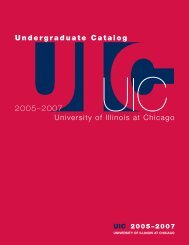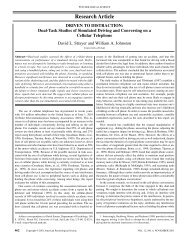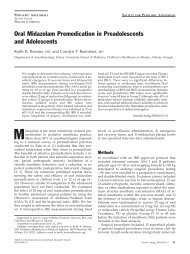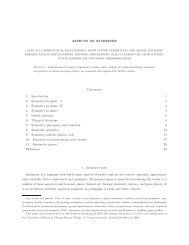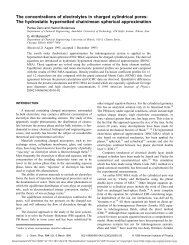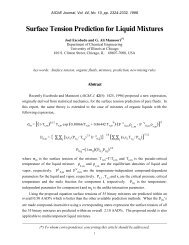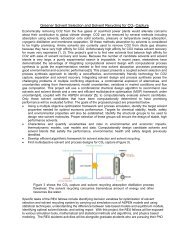Repeating Lenin by Slavoj Zizek
Repeating Lenin by Slavoj Zizek
Repeating Lenin by Slavoj Zizek
You also want an ePaper? Increase the reach of your titles
YUMPU automatically turns print PDFs into web optimized ePapers that Google loves.
<strong>Repeating</strong> <strong>Lenin</strong> <strong>by</strong> <strong>Slavoj</strong> <strong>Zizek</strong><br />
9/20/11 2:53 PM<br />
an animal has as much interest in living as a human. Therefore, all things being equal, medical<br />
experimentation on animals is immoral: those who advocate such experiments claim that<br />
sacrificing the lives of 20 animals will save millions of human lives — however, what about<br />
sacrificing 20 humans to save millions of animals? As Singer’s critics like to point out, the<br />
horrifying extension of this principle is that the interests of 20 people outweighs the interests of<br />
one, which gives the green light to all sorts of human rights abuses.<br />
Consequently, Singer argues that we can no longer rely on traditional ethics for answers to the<br />
dilemmas which our constellation imposes on ourselves; he proposes a new ethics meant to<br />
protect the quality, not the sanctity, of human life. As sharp boundaries disappear between life<br />
and death, between humans and animals, this new ethics casts doubt on the morality of animal<br />
research, while offering a sympathetic assessment of infanticide. When a ba<strong>by</strong> is born with<br />
severe defects of the sort that always used to kill babies, are doctors and parents now morally<br />
obligated to use the latest technologies, regardless of cost? NO. When a pregnant woman loses<br />
all brain function, should doctors use new procedures to keep her body living until the ba<strong>by</strong> can<br />
be born? NO. Can a doctor ethically help terminally ill patients to kill themselves? YES.<br />
The first thing to discern here is the hidden utopian dimension of such a survivalist stance.<br />
The easiest way to detect ideological surplus-enjoyment in an ideological formation is to read it<br />
as a dream and analyze the displacement at work in it. Freud reports of a dream of one of his<br />
patients which consists of a simple scene: the patient is at a funeral of one of his relatives. The<br />
key to the dream (which repeats a real-life event from the previous day) is that, at this funeral,<br />
the patient unexpectedly encountered a woman, his old love towards whom he still felt very<br />
deeply — far from being a masochistic dream, this dream thus simply articulates the patient’s<br />
joy at meeting again his old love. Is the mechanism of displacement at work in this dream not<br />
strictly homologous to the one elaborated <strong>by</strong> Fredric Jameson apropos of a science-fiction film<br />
which takes place in California in near future, after a mysterious virus has very quickly killed a<br />
great majority of the population? When the film’s heroes wander in the empty shopping malls,<br />
with all the merchandises intact at their disposal, is this libidinal gain of having access to the<br />
material goods without the alienating market machinery not the true point of the film occluded<br />
<strong>by</strong> the displacement of the official focus of the narrative on the catastrophe caused <strong>by</strong> the virus?<br />
At an even more elementary level, is not one of the commonplaces of the sci-fi theory that the<br />
true point of the novels or movies about a global catastrophe resides in the sudden reassertion of<br />
social solidarity and the spirit of collaboration among the survivors? It is as if, in our society,<br />
global catastrophe is the price one has to pay for gaining access to solidary collaboration...<br />
When my son was a small boy, his most cherished personal possession was a special large<br />
http://www.marxists.org/reference/subject/philosophy/works/ot/zizek1.htm<br />
Page 12 of 57



